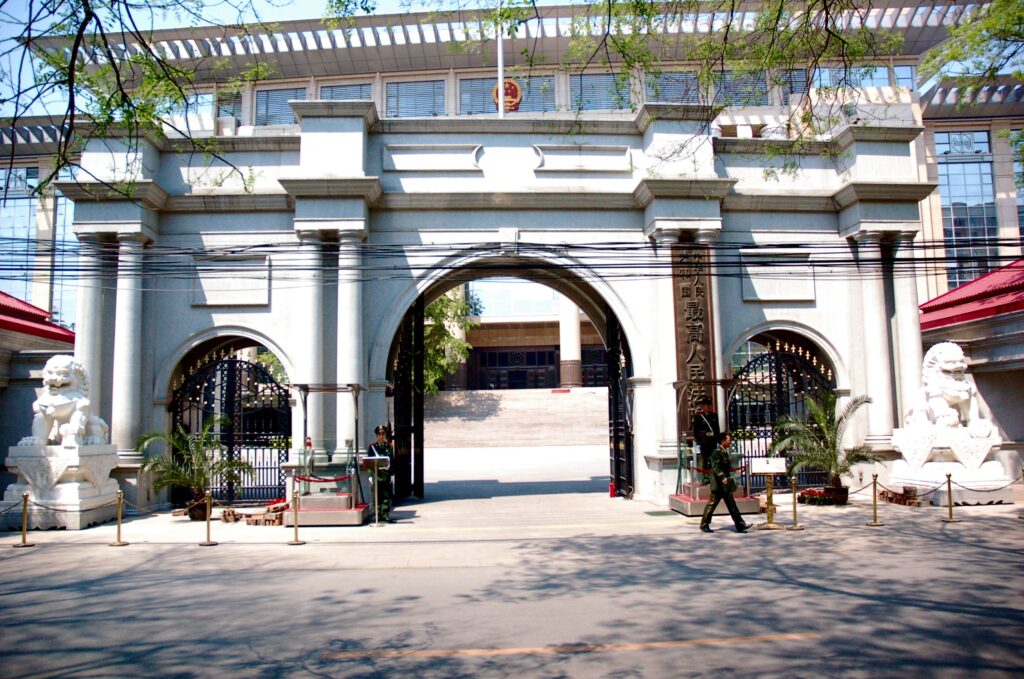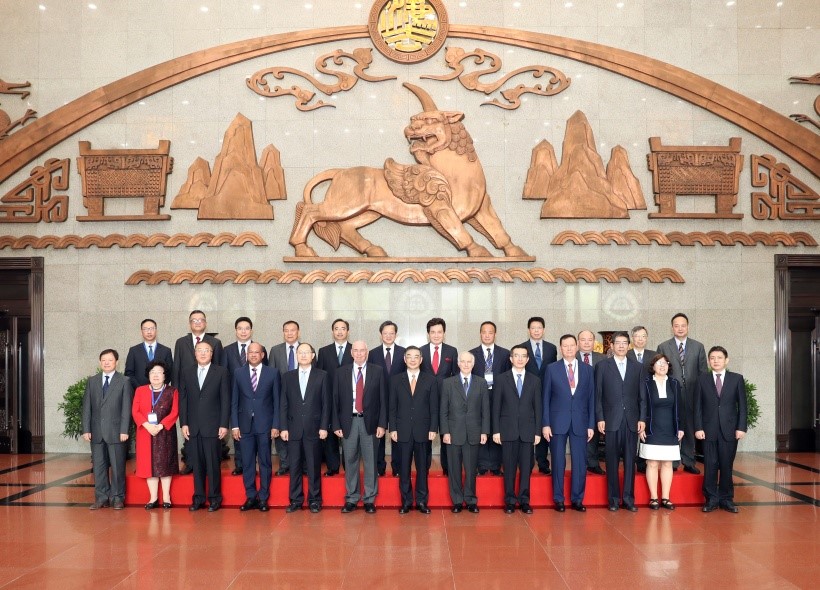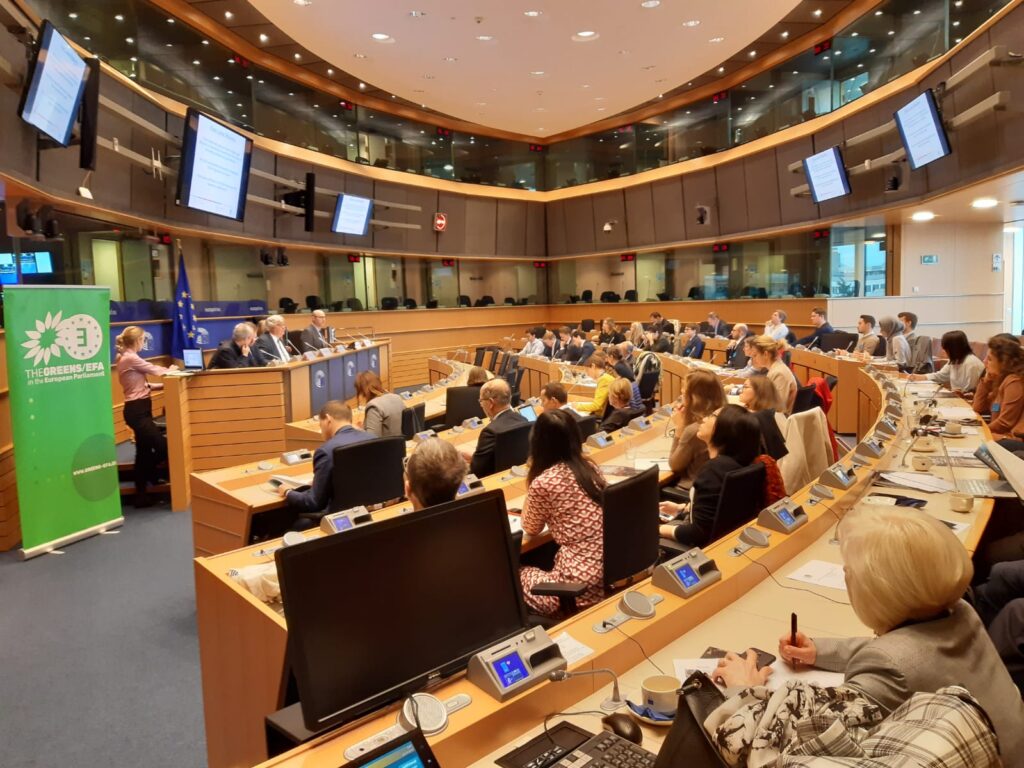A new paper by Susan Finder

How does the Chinese political-legal system operate in the Xi Jinping era? This article published in the China Law and Society Review provides a detailed discussion of the poorly understood operations of the Supreme People’s Court (SPC) including its intricate interactions with central Party and state institutions, against the background of strengthened Party leadership. It provides insights into specific aspects of the Party’s leadership of the judiciary and its implications, usually unseen functions and operations of the SPC, and the link between Party policy, the judiciary, and the development of Chinese law.
I focus on the roles of the SPC in supporting “foreign-related rule of law” as an example of how the work of China’s highest court has evolved in the Xi Jinping New Era to support more robustly major national strategies. The article examines functions of the SPC little explored previously, because some are only partially transparent. I first summarize developments concerning the strengthening of Party leadership over political-legal institutions, because those have a direct and indirect impact on the SPC’s foreign-related judicial work. I highlight the greater focus on the SPC’s leadership’s fulfillment of political obligations and responsibility to the Party leadership. Providing appropriate judicial support for national strategies is an important way in which the SPC as a political-legal institution fulfills its political obligations to the Party leadership.
The SPC functions identified as most important in developing foreign-related rule of law are, first, policy-making and guidance of the lower courts; second, “law-making;” third, case hearing and selection; and fourth, coordinating and cooperating with central Party and state institutions. The characterization of the functions is original to this article. The non-case hearing functions are linked in some way to hearing cases and are ones the SPC has always performed.
In contrast to most apex courts globally, the work of the SPC in supporting “foreign-related rule of law” is more focused on policy-making and influencing legal and judicial policies; providing guidance to the lower courts, what this article describes as “law-making”; and coordinating and cooperating with other central Party and state institutions, rather than making judicial decisions.
First, part of the SPC’s role is to create, amend, and implement judicial policy in response to or in anticipation of the impact of changes in Party and state policy or other social, economic, or legal changes. One of the principal ways in which the SPC publicizes new or amended judicial policy is by issuing judicial policy documents. These documents guide and inform the lower courts about new or readjusted judicial policy and inform related central Party and state institutions about these developments. They also signal to the Party leadership that their initiative is being implemented. In some areas of law, the SPC leads the legal and judicial policy initiative, while in others, it provides its expertise when other institutions take the lead. The policy documents and any typical cases issued in addition to or in lieu of a policy document contain both political and substantive guidance intended to guide lower court judges both in frontline and leadership roles. These documents may not be cited in court judgments or rulings but may have an impact on judicial thinking.
Second, an important but less-understood part of the role of the SPC in contributing to the development of China’s foreign-related legal system is “law-making.” This characterization is meant to convey the SPC’s contribution to legislation described by the SPC as “actively cooperating with foreign-related legislation” (积极配合涉外立法), not as a formal assertion that the SPC makes law. This contribution takes several forms, not all of them formalized in law. The first type is provided by the Legislation Law which authorizes the SPC to submit legislative bills to the National People’s Congress (NPC), and the NPC Standing Committee. The second type is by drafting and issuing judicial interpretations, as authorized by the Organic Law of the People’s Courts and the Legislation Law. The SPC has the authority to issue meeting minutes (conference summaries) and similar documents which have a less certain formal authority but are highly persuasive in practice.
Two other types lack specific legislative authority but are important ways in which the SPC contributes to legislation, particularly foreign-related legislation: providing support to the NPC and the NPC Standing Committee when it drafts legislation; and providing support to the Ministry of Justice and other Party and state institutions when those institutions draft legislation that is eventually submitted to the NPC or the NPC Standing Committee. These two ways combine the SPCs indirect law-making role with its cooperation role. The extent to which the SPC participates in “law-making” in foreign-related matters is not entirely clear because related documents are made public sparingly.
The people’s courts are a highly political professional institution, and a highly professional political institution (人民法院是政治性很强的业务机关,也是业务性很强的政治机关)
Official SPC media channels
Third, the SPC decides some cases involving foreign-related commercial law and issues some cases as guidance, either as guiding or typical cases. It decides some cases relating to arbitration through an administrative procedure, others through retrial or second instance procedures, and others when certain selected SPC judges sit as panels of the China International Commercial Court. Additionally, the SPC issues cases as guiding, or more often typical cases as a form of guidance. The SPC occasionally issues guiding cases but more often issues typical cases to provide political and substantive guidance for the lower courts, sometimes linked to a policy document.
Fourth, one of the unrecognized functions of the SPC is coordination with other central Party and state organs regarding specific legal issues, based on bureaucratic custom. This work is only partially visible. The SPC has coordinated and cooperated with other central Party and state institutions on a broad variety of legal matters for many years, but it appears to be little discussed in English-language literature. The coordination and cooperation take a variety of forms, and which institutions and departments are relevant depends on the matter under consideration. For example, the SPC provides support to the Ministry of Foreign Affairs or other ministries that lead treaty or convention negotiations, such as the Ministry of Commerce.
The article concludes that the SPC’s foreign-related legal expertise, as shown by the Politburo’s November, 2023 collective study session on foreign-related rule of law, has become significantly more important to China’s political leadership and other central-level Party and state institutions. Its significance to the political leadership is in its work in creating a body of foreign-related law. Given that the Party leadership increasingly stresses political leadership of the courts and political competence of members of the judiciary, carrying out the functions described above requires SPC judges dealing with foreign-related matters to have both a high degree of political consciousness and technical expertise. Why? As the SPC media often say, “the people’s courts are a highly political professional institution, and a highly professional political institution” (人民法院是政治性很强的业务机关,也是业务性很强的政治机关).
Susan Finder is a long-standing observer of the Chinese judicial system with more than 30 years of experience. She is a member of the international commercial expert committee of the China International Commercial Court (CICC) of the Supreme People’s Court and on the committee of the Shanghai International Arbitration Center. The views expressed in this article are her own, not those of either institution. She is a Distinguished Scholar in Residence at the School of Transnational Law of Peking University (Shenzhen), where she teaches about judicial reform in comparative perspective. Her blog, the Supreme People’s Court Monitor, is arguably the most authoritative scholarly resource on developments around the People’s Republic of China’s highest court. Follow her on Twitter @SPCmonitor or get in touch per email at susan.finder[at]outlook.com


